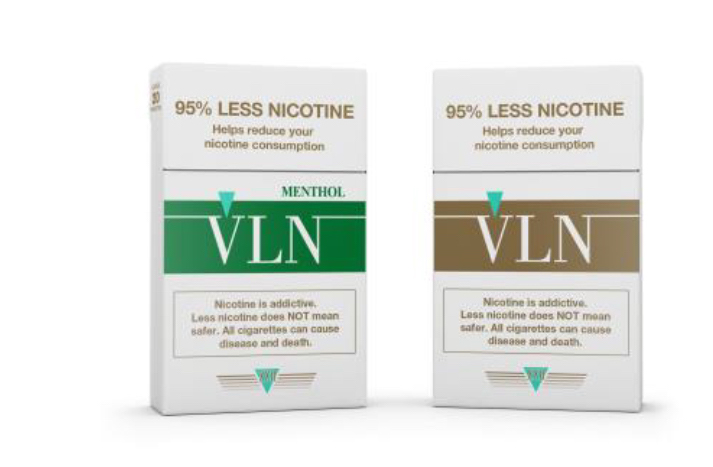Plus: Bipartisan support for federal SUD funding, and more treatment industry news
By Mark Mravic
New & Next: Workforce
COVID, the Overdose Crisis and Workforce Burnout
A new study out of Canada details how the twin public health crises of the COVID-19 pandemic and the opioid epidemic crisis continue to have a profound effect on addiction recovery workers, causing unprecedented levels of burnout. The report, by the Canadian Centre on Substance Use and Addiction (CCSA) and applicable to the U.S., found that harm reduction workers—broadly defined as anyone working to reduce negative consequences associated with drug use—were experiencing burnout and secondary traumatic stress at levels even higher than those reported by hospital workers during the heights of COVID.
“Those working in this field are saturated with grief.”
—CCSA study on the addiction treatment workforce
“[Those] working in harm reduction are experiencing a pronounced strain on their emotional well-being,” the report says. “Vulnerability to grief reported in our study approached levels previously observed among bereaved individuals. Partners in our consultations indicated burnout had become normalized in their profession, and those working in this field are saturated with grief.”
The study’s authors identify five strategies to improve the well-being of the workforce:
- Healthcare systems that integrate harm reduction services to increase access and better meet the needs of both patients and those providing service
- Sustainable and reliable funding that allows for a continuity of services, removing financial and planning stressors for program directors and staff
- Sufficient compensation from benefit providers for counseling resources that are gender-, trauma- and grief-informed, ensuring that investments in treatment and recovery resources will have meaningful outcomes
- Continued evaluation of staffing models and policies, as well as addressing structural issues that lead to burnout, such as job precarity and economic insecurity
- Bolstering anti-stigma initiatives to combat overt and subtle stigma toward those seeking and those providing help for substance use disorder (SUD)
“The proper support can benefit the overall well-being of harm reduction workers as well as the individuals they are trying to help, and in turn it will strengthen our broader healthcare system,” said Sheena Taha, PhD, interim director of knowledge mobilization for CCSA. “I think it’s important to convey that despite these stressors and challenges, our study also found harm reduction service providers consistently reported obtaining great meaning and fulfillment from their work.”
New & Next: Politics
Across-the-Board Support for On-Demand SUD Treatment
A country deeply divided on a troubling range of issues agrees on one at least: Large majorities of both Democrats and Republicans support federal funding for expanded SUD treatment programs to ensure that all who need and want treatment can get it—sometimes called “treatment on demand.” The University of Maryland’s Program for Public Consultation (PPC) surveyed more than 2,600 American voters from across the political spectrum, presenting them with detailed Congressional reforms drawn from several prominent pieces of legislation addressing SUD and the opioid crisis. The survey participants were provided with arguments for and against the various proposals, which were evaluated beforehand by experts from all sides to ensure their accuracy, balance and strength.
All the reforms that increased funding for treatment had strong support. Among the findings:
- When asked, “How high a priority should it be for the government to ensure that every person who needs and wants treatment for their substance use disorder is able to get it,” 80% said it was a very or somewhat high priority, including 94% of Democrats and 67% of Republicans
- 75% supported spending $10 billion to fund treatment for all those who want it but are not able to get it, by expanding the number of treatment centers, training and hiring more treatment professionals, subsidizing treatment for low-income earners and funding more research; 92% of Democrats were in favor and 58% of Republicans
- 74% favored the proposal to fund the expansion of treatment programs in prisons and to improve them so that treatment is based on the most current evidence, including 89% of Democrats and 61% of Republicans
In the face of the opioid epidemic and rising overdose rates, PPC director Steven Kull said, “Americans have come to a bipartisan consensus that the federal government should ensure that substance abuse treatment be provided to all who want it.”
New & Next: Research
$6.4M to Study Opioid and Meth Treatment Drugs
The National Institute on Drug Abuse (NIDA) has awarded $6.4 million to researchers from Wake Forest University, Camino Pharma and the biomedical research institute Sanford Burnham Prebys to test potential drugs to treat opioid and methamphetamine disorders. The three-year project will look at whether a promising pharmaceutical approach to tobacco addiction now in trials may be applicable to a wider range of drugs. The study will involve two drug candidates that inhibit the transmission of glutamate, which plays a central role in behaviors associated with drug use and relapse.
“By targeting the glutamate system, we may be able to treat opioid and methamphetamine use disorders without some of the risks that come with current treatments, which themselves can be addicting,” said Sanford Burnham Prebys’s Douglas Sheffler, PhD, in a release. “What is gratifying about this work is that what we find will guide future directions to solve this health crisis.”
New & Next: People
Kugler Takes Charge of Shatterproof’s ATLAS Platform

Addiction nonprofit Shatterproof has appointed Lisa Kugler, PsyD, as senior vice president, responsible for overseeing all aspects of the Addiction Treatment Locator, Assessment and Standards (ATLAS) program. Shatterproof created ATLAS as a quality measurement platform to help individuals and families seeking addiction treatment find high-quality, evidence-based care. In her role, Kugler will identify strategic relationships to advance ATLAS’s profile and manage its adoption by states and payers. Launched in July 2020, ATLAS is currently available in 10 states—Delaware, Florida, Louisiana, Massachusetts, New Jersey, New York, North Carolina, Oklahoma, Pennsylvania and West Virginia—with plans to expand to California next year, at which point it will reach 45% of the U.S. population.
Before joining Shatterproof, Kugler led Beacon Care Services, the direct care provider of Elevance/Beacon Health Options, which serves individuals in 24 states. “Dr. Lisa Kugler has a history of building high-growth teams and implementing multistate programs with a strong focus on data-driven results,” said Gary Mendell, CEO and founder of Shatterproof. “Her extensive healthcare background, combined with her passion for changing the landscape of behavioral health services to support individuals, families and communities, will help Shatterproof continue to accomplish our goal to create systemic change in our healthcare system with regards to access and treatment for substance use disorder.”
Top photo: Grant Thomas














